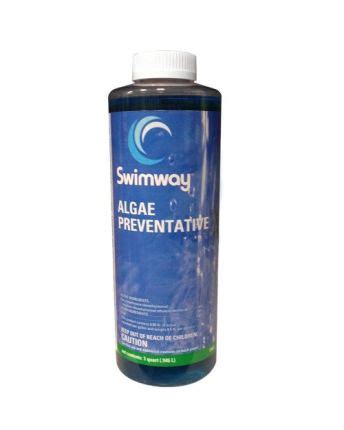Avoid the Algae Mess: Perfect Closing Dosage for Your Pool
Maintaining a sparkling clean swimming pool requires diligent effort, and one of the most frustrating aspects is battling algae. While regular cleaning and filtration are crucial, properly dosing your pool chemicals at the end of the swimming season is vital for preventing algae blooms and making spring opening a breeze. Getting the closing dosage right is key to avoiding a green, slimy surprise next spring. This guide will walk you through the process, ensuring your pool stays pristine until you're ready to dive in again.
What Happens if I Don't Properly Close My Pool?
Failing to properly close your pool increases the risk of several problems:
- Algae growth: Standing water provides the perfect breeding ground for algae, leading to unsightly green water and potentially damaging your pool's surfaces.
- Damaged equipment: Freezing temperatures can damage pumps, filters, and other equipment if the water isn't properly treated and the system isn't winterized.
- Scaling and staining: Mineral buildup can occur, staining the pool walls and making cleaning more difficult in the spring.
- Unpleasant odors: Stagnant water can develop unpleasant odors due to bacterial growth.
What's the Best Closing Dosage for Pool Chemicals?
There's no one-size-fits-all answer, as the ideal closing dosage depends on several factors including your pool's size, type (in-ground, above-ground), and the current water chemistry. However, the general principle involves shock treatment and algaecide application.
Shock Treatment: This process kills bacteria and organic matter that contribute to algae growth. A non-chlorine shock, like potassium monopersulfate, is often preferred for closing because it doesn't leave behind as much chlorine to potentially damage equipment over the winter. Always follow the manufacturer's instructions for dosage based on your pool's volume.
Algaecide: Applying an algaecide acts as a preventative measure against algae growth throughout the winter months. Again, follow the product's instructions carefully, as dosages vary by brand and concentration.
Additional Chemicals: Depending on your pool's specific needs, you might also consider adding:
- Clarifier: This helps to remove any remaining small particles suspended in the water.
- pH balancer: Ensuring your water's pH is balanced within the ideal range (7.2-7.8) helps prevent damage and protects your pool equipment.
How Do I Determine the Right Amount of Chemicals for My Pool?
Accurately calculating the correct dosage is crucial. You'll need to know your pool's volume. Many pool supply stores can help you determine this based on your pool's dimensions, or you can find online calculators that can do the same. Once you know the volume, refer to the instructions on your chosen pool chemicals to determine the proper amount to add.
What About Winterizing My Pool Equipment?
Beyond chemical treatment, winterizing your pool equipment is equally important. This usually involves:
- Draining and blowing out lines: Removing water from pipes and equipment prevents freezing and damage.
- Removing and storing equipment: Smaller equipment, such as skimmers and pumps, should be removed and stored indoors to protect them from the elements.
- Protecting the pump and filter: Use a pool cover to protect your equipment from the elements.
How Often Should I Check My Pool Water During Winter?
While you won't be swimming, it's still a good idea to check your pool water every few weeks, especially if you experience significant temperature changes or rainfall. This allows you to detect and address any potential issues early on.
Can I Use a Pool Closing Kit?
Many pool supply stores sell pool closing kits containing all the necessary chemicals and tools for winterizing your pool. While convenient, ensure you still understand the instructions and properly calculate dosages based on your pool's specific needs.
Conclusion: A Clean Pool Awaits Next Spring
Properly closing your pool with the correct closing dosage prevents algae growth and protects your investment. By following these steps, you can ensure a hassle-free opening next spring and enjoy many more seasons of refreshing swims. Remember to always consult with your local pool professional for advice tailored to your specific pool and climate.

